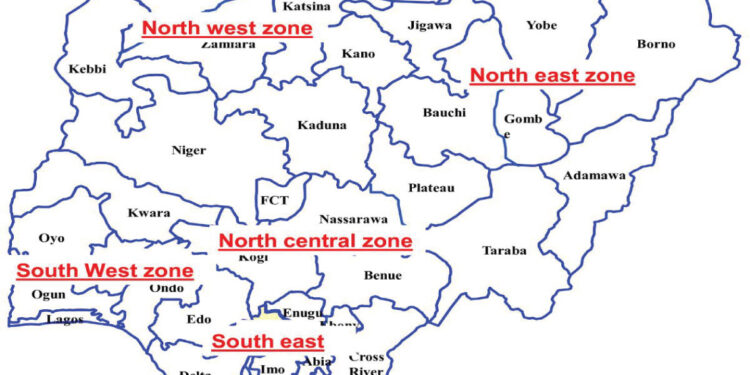President Mohummadu Buhari on Friday presented a budget proposal of N20.51tn for the 2023 fiscal year to the joint session of the National Assembly.
A cross examination of the appropriation bill revealed that the Office of the President will spend N2.49bn on local and foreign trips, while that of the Vice-President will spend N846.61m on the same item.
In the document, the PAF’s budget is categorised under the Office of the National Security Adviser.
Aircraft fuelling will cost the government N250m, purchase of air navigational and defence equipment will gulp N1.50bn, while N650m will go for a new mobile helicopter landing pad.
Bank charges will gulp N36.15m and insurance premium on all 10 aircraft in the fleet is expected to cost N180m.
The Presidency had revealed that the PAF maintains 10 aircraft since the inception of the Buhari regime in May 2015. These are Boeing Business Jet (Boeing 737-800 or NAF 001), one Gulfstream 550, one Gulfstream V (Gulfstream 500), two Falcons 7X, one Hawker Siddeley 4000, two AgustaWestland AW 139 helicopters and two AgustaWestland AW 101 helicopters.
However, not all of the money will be directly flight-related.
It was observed that in the PAF budget, N40.45m was earmarked for the construction and equipping of a new presidential kitchen and crew rest area; N80.50m for the construction and equipping of a fleet defence coordination centre; N120m for the renovation and equipping of the PAF Lagos warehouse; N100.75m for the construction of six units (four-bedroom) for senior officers and road network, and N100.45m for the purchase of “one marauder vehicle for force and assets protection.”
Both offices will also spend a total of N508.71m on foodstuffs and refreshments. The amount stands at N331.79m and N176.92m for the offices of the President and Vice-President, respectively.
Closer comparison of the fiscal budgets for 2022 and 2023 revealed a 54.64 per cent drop in the PAF allocations.
In 2022, for instance, the PAF budget stood at N12.48bn, which is 54.64 per cent higher than the N8.07bn allocated for the 2023 fiscal year.
In the 2022 budget proposal, 22 items were designated as new or ongoing projects. These items amounted to N8.13bn.
In the 2023 proposal, however, only nine items were labelled as new or ongoing, amounting to N3.44bn.
Furthermore, the Federal Government proposed N100bn as constituency budget for the statutory Zonal Intervention Project, which will be implemented by members of the National Assembly.
Despite the fact that the budget will be largely funded with loans, it was observed that the allocation for the statutory N100bn constituency projects was not reduced.
This means that the Federal Government in six years had spent over N600bn on lawmakers’ constituency projects.
There have been controversies over the execution of constituency projects by lawmakers with the President also condemning the abuse of the allocation.
Buhari had said, “It is on record that in the past 10 years, N1tn has been appropriated for constituency projects, yet the impact of such huge spending on the lives and welfare of ordinary Nigerians can hardly be seen.”
The allocation for the renovation of the National Assembly complex was not expressly stated, but it was categorised under government buildings with N1.7bn allocated.
Meanwhile, the government will be spending a total of N299.8bn on salaries and wages of lecturers and other categories of workers in federal universities next year.
The figure does not include the amount that will be paid as salaries to lecturers and workers in inter-university centres such as the Nigerian French Language Village; the Arabic language Village, Borno; National Institute for Nigerian Languages; and the International Centre for Biotechnology, University of Nigeria, Nsukka.
According to the 2023 appropriation bill, lecturers and workers in federal universities, including the National Open University of Nigeria, will earn N299,824,662,756 as salaries and wages.
In the breakdown, the University of Nigeria, Nsukka will get the highest amount of N21,245,020,967; the Ahmadu Bello University, Zaria, follows with N18,106,769,124.
University of Benin will receive N14,708,298,696; University of Lagos, N12,109,993,909; University of Ibadan, N13,698,057,825; and University of Calabar, N16,163,662,566.
Others are University of Ilorin, N8,470,227,623; University of Port Harcourt, N10,693,373,602; Federal University of Technology, Owerri, N10,468,542,426; and University of Uyo, N8,845,618,115.
Some of the universities with the lowest wages and salaries include Federal University of Technology Ikot-Abasi, with N912,061,591; David Umahi Federal University of Medical Sciences, N1,207,502,124; and Federal University of Health Sciences, Otukpo, N1,418,218,616, among others.
Further analysis of the budget document revealed that the federal universities would spend nothing less than N6.5bn on electricity and generator fuelling.
The University of Lagos will spend N1.4bn on electricity charges; ABU, N1.04bn; and UI, N60m.
The Nigerian Maritime University will be allocated N80m for plant/generator fuelling; while Bayero University, Kano, will get N89.1m for the same purpose.



















